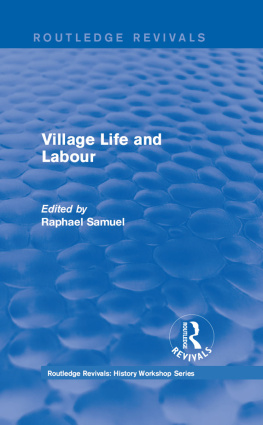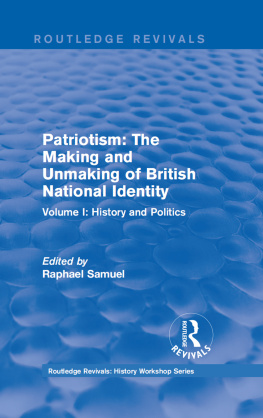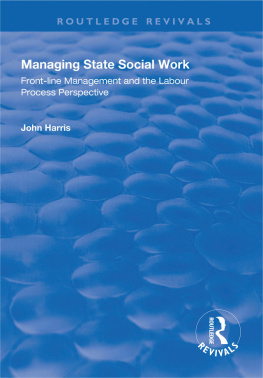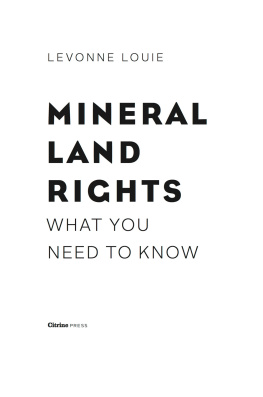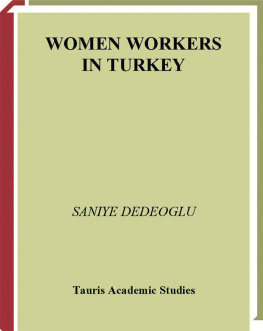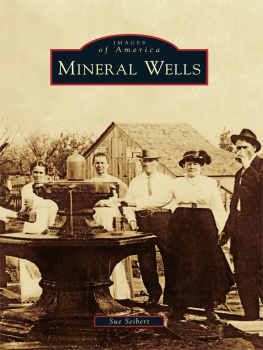Contents

Routledge Revivals
Village Life and Labour
First published in 1975, this volume aims to direct attention at a number of aspects of the lives and occupations of village labourers in the nineteenth-century that have been little examined by historians outside of agriculture. Some of the factors examined include the labourers gender, whether they lived in closed or open villages and what they worked at during the different seasons of the year. The author examines a range of occupations that have previously been ignored as too local to show up in national statistics or too short-lived to rank as occupations at all, as well as sources of secondary income. The analysis of all of these factors is related to the seasonal cycle of field labour and harvests. The central focus is on the cottage economy and the manifold contrivances by which labouring families attempted to keep themselves afloat.
Village Life and Labour
Edited by
Raphael Samuel

First published in 1975
by Routledge & Kegan Paul
This edition first published in 2017 by Routledge
2 Park Square, Milton Park, Abingdon, Oxon, OX14 4RN
and by Routledge
711 Third Avenue, New York, NY 10017
Routledge is an imprint of the Taylor & Francis Group, an informa business
1975 History Workshop Journal
All rights reserved. No part of this book may be reprinted or reproduced or utilised in any form or by any electronic, mechanical, or other means, now known or hereafter invented, including photocopying and recording, or in any information storage or retrieval system, without permission in writing from the publishers.
Publishers Note
The publisher has gone to great lengths to ensure the quality of this reprint but points out that some imperfections in the original copies may be apparent.
Disclaimer
The publisher has made every effort to trace copyright holders and welcomes correspondence from those they have been unable to contact.
A Library of Congress record exists under LC control number: 75315965
ISBN 13: 978-1-138-21354-8 (hbk)
ISBN 13: 978-1-315-44800-8 (ebk)
edited by
Raphael Samuel
Tutor in Social History and Sociology Ruskin College, Oxford
Village Life and Labour
First published in 1975
by Routledge & Kegan Paul Ltd
Broadway House, 68-74 Carter Lane,
London EC4V 5EL and
9 Park Street,
Boston, Mass. 02108, USA
Set in Monotype Modern Extended
and printed in Great Britain by
The Camelot Press Ltd, Southampton
this collection History Workshop, Oxford, 1975
The place of harvesters in nineteenth-century
village life David H. Morgan 1975
Country work girls in nineteenth-century
England Jennie Kitteringham 1975
Editorial introduction, Village labour
and Quarry roughs Raphael
Samuel 1975
No part of this book may be reproduced in any form without permission from the publisher, except for the quotation of brief passages in criticism
ISBN 0 7100 7499 9 (c)
0 7100 7500 6 (p)
Contents
Raphael Samuel
David H. Morgan
Jennie Kitteringham
Raphael Samuel
Illustrations
Plates
between
The place of harvesters in nineteenth-century village life
Country work girls in nineteenth-century England
Quarry roughs: life and labour in Headington Quarry, 18601920
Figures
David Morgan started work on the land in 1940 and was a cowman for over twenty years. He was a student at Ruskin College from 1967 to 1969. His chapter on Harvesters was first given at a History Workshop on the English countryside in the nineteenth century (in 1967), and later extended into a thesis at the University of Warwick.
Jennie Kitteringham comes from a farm workers family and spent her childhood on farms in Dorset and later Warwickshire. She was a student at Ruskin College from 1969 to 1971 and is now at Hull University. Her chapter stems from work begun for the History Workshop on childhood (1970), and a version of it appeared as a History Workshop pamphlet.
Raphael Samuel has been tutor in social history and sociology at Ruskin College since 1963. An early version of the chapter on Headington Quarry was given at the History Workshop on proletarian Oxfordshire, in 1968.
A workers questions while reading
Who built Thebes of the Seven Gates?
In the books stand the names of Kings.
Did they then drag up the rock-slabs?
And Babylon, so often destroyed,
Who kept rebuilding it?
In which houses did the builders live
In gold-glittering Lima?
Where did the bricklayers go
The evening the Great Wall of China was finished?
Great Rome is full of triumphal arches.
Over whom did the Caesars triumph?
Were there only palaces for the inhabitants of much-sung Byzantium?
Even in legendary Atlantis
Didnt the drowning shout for their slaves
As the ocean engulfed it?
The young Alexander conquered India.
He alone?
Caesar beat the Gauls.
Without even a cook?
Philip of Spain wept when his fleet went down.
Did no one else weep besides?
Frederick the Great won the Seven Years War.
Who won it with him?
A victory on every page
Who cooked the victory feast?
A great man every ten years.
Who paid the costs?
So many reports
So many questions.
Bertolt Brecht
It is remarkable how much history has been written from the vantage point of those who have had the charge of running or attempting to run other peoples lives, and how little from the real-life experience of people themselves. The history of education is a prime example. It is either a history of great headmasters and reformers, or else about organizational change. The student is expected to memorize (for examination purposes) the more controversial clauses of the different Education Acts, to summarize the findings and recommendations of various Royal Commissions, and to set education in a wider context of denominational rivalries and party politics. He does not need to know much about the children where they sat, what they learnt, how they were disciplined (or bribed) into obedience; nor will he be invited to inquire into the wider context which the child itself experienced the interplay of family, work and home, or the way in which schooling helped to teach behaviour and inculcate sex and class roles.
Trade-union history, though ostensibly devoted to the workers, is often quite as bureaucratic. This is partly because of the nature of the documents available (chiefly executive minute books), partly because of the teleological way in which the subject is defined (the origin and growth of national organization), and partly, perhaps, because of an inherited bias from the Webbs, who first gave the subject shape. Everything is seen from Head Office. The General Secretary walks in and out, a familiar figure; the rank and file, on the other hand, remain anonymous, a dark outside, and appear in the records only as troublemakers, or seceders, or members in arrears. Housing conditions, to take another nineteenth-century example, are still seen through the eyes of the sanitary reformer rather than those of the people who actually lived in them as tenants or lodgers. The problem is defined as hygienic. We are told about overcrowding but not about its consequences for family and street life; about mortality rates and epidemics, but not about the ways in which illness was treated, pregnancies coped with, or families reorganized at death. The student will be more familiar with the medical officer of health than the threepenny back street doctor. (See, however,

